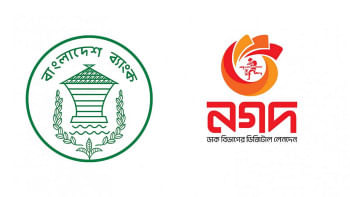The ISIS factor and our youth

The mode of operation and determination of the terrorist executors coupled with the savagery that surfaced during the recent Gulshan Holy Artisan Bakery incident should prompt serious thinking about the thought processes of a vital segment of our population. From a historical perspective, the pre-1947 generations, one could suppose, were principally preoccupied with the mission of driving out the British imperialists from the subcontinent. Thereafter, the post-1947 generations became greatly disillusioned by the colonial actions of the Pakistani establishment. The repressive and genocidal attacks of that entity expedited the creation of a free and sovereign Bangladesh in 1971.
Under the circumstances, one might wonder about the aspirations and frustrations of the young Bangladeshis that constitute nearly 70 percent of the population. This is so because a part of this young population has resorted to unprecedented violent actions to allegedly realise political and perhaps divine goals.
The unsettling dimension of the gory incident at Gulshan is that the attackers and their guides and the masterminds reportedly have had the benefit of better education to enable them to grasp the realities of power equations and the compulsions of international geo-politics. It is thus puzzling as to why should Bangladeshi Muslims, howsoever small in number, commit themselves so completely to carry out the ISIS agenda. Does it not occur to them that the birth of ISIS originated in the internal clashes of Islamic groups in Iraq and also Syria?
In fact, one would not be far from reality to say that ISIS is not the result of clash of Islam with the West. This is not to say that the foreign policy of the United States had not significantly contributed to the advent of ISIS. The US invasion of 2003 devastated the already fragile and fractious Iraqi society, and institutions like the army and the ruling BAATH party disintegrated, giving rise to violent sectarian clashes. It was in such circumstances that the so-called jihadi groups sprouted in Iraqi society. Initially, it was Al-Qaeda in Iraq and currently, it is ISIS which actually is an extension of Al-Qaeda led by former Iraqi army officers.
The Sunni population of Syria, being emboldened by the so-called Arab Spring, took to the streets for greater freedom and Sunni representation. The Assad Regime, with active support of Shia Iran, brutally suppressed the revolt and consequently, we now have the Syrian civil war with the resultant destruction of institutions.
In an intensely sectarian conflict scenario, the Shia-Sunni polarisation took on a violent dimension. The ISIS has taken advantage of this polarisation and ventures to project itself as the defender of the faith fighting the religious and ideological enemy of Islam, the West inclusive. Majority of the Muslims worldwide do not, however, subscribe to their belief, strategy and tactics.
The attackers at Gulshan Holy Artisan Bakery and their companions do not know that by their actions they are unwittingly serving the causes of their professed adversary. Don't they realise as to which quarters are financing the ISIS and who are trying to malign Islam by projecting the faith as a religion of violence? And who are keeping Muslims engaged in internecine and fratricidal clashes by stoking the Shia-Sunni divide?
The Bangladeshi youth need to know that our Prophet Muhammad (PBUH) never ventured to impose religious orthodoxy and his mission was to change the hearts and minds. The Messenger of Allah called the prevailing spirit of his time Jahiliyyah and used the term to refer not to an historical era but to a state of mind that caused violence and terror. That state of mind is also much in evidence in the West today as well as in the Muslim world.
Our youth need to know that the Holy Qur'an condemns aggression and sees all rightly guided religions as deriving from the one God. One has to appreciate the extraordinary pluralism of the Holy Qur'an. The impressionable minds should be made to understand that cultivating an inaccurate prejudice damages the tolerance, liberality, and compassion that are supposed to characterise the Islamic faith. The fact is that Islam's liberal principle cannot be defended by reviving a medieval prejudice.
Our youth need to know that 'jihad' does not mean "holy war", it means "struggle". Prophet Muhammad (PBUH) sweated with the effort to bring peace to strife-torn Arabia and we need to follow him today. His life was a tireless campaign against greed, injustice and arrogance. Our Prophet (PBUH), in fact, wore himself out in the creative effort to evolve an entirely new solution.
The imperative is to suitably connect with the younger generation for the true message of Islam to internalise culturally, without lamenting for the deviations caused thus far. Therefore, peace is the priority.
Let us remember that "God summons humankind to the abode of peace (dar as-salam), both in this life and in the next." (10:25)
So closely is the concept of peace (salam) related to surrender (Islam) that the two become interchangeable, from the first revelation till the final Day of Judgement.
It is angelic intermediaries who mark the first revelation of the Qur'an, and they mark it with the greetings of peace. During the Night of Power, when the Qur'an is said to have been revealed in its entirety to the Prophet Muhammad:
"Angels and the spirit alight,
On every errand by God made right
Peace reigns until dawn's early light. (97:4-5)"
The writer is a columnist of The Daily Star.

 For all latest news, follow The Daily Star's Google News channel.
For all latest news, follow The Daily Star's Google News channel. 



Comments